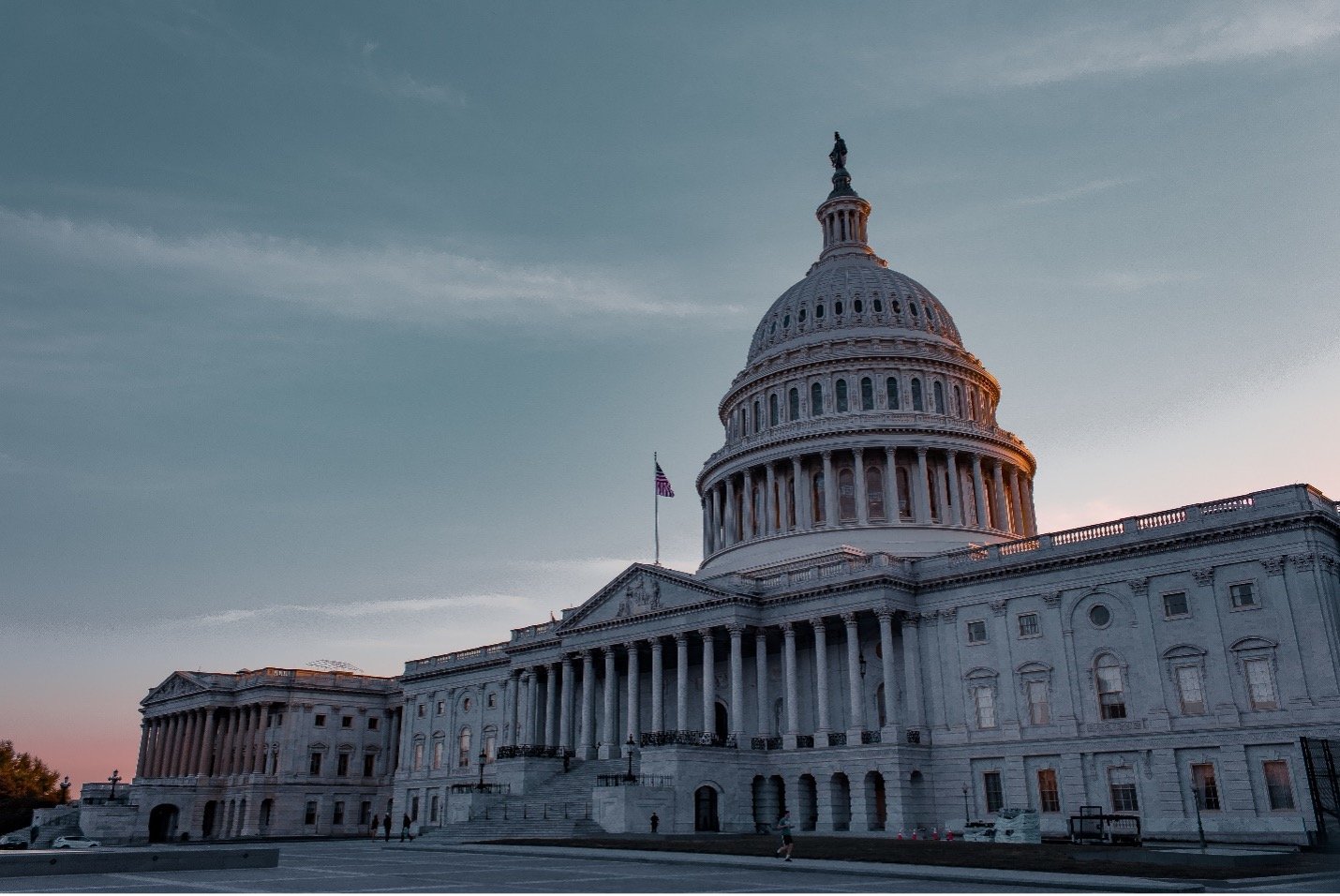SBIR and STTR Extension Act – What Are These Programs and What Does This Mean for Small Businesses?

Key Details: The Senate passed the Small Business Innovation Research (SBIR) and Small Business Technology Transfer (STTR) Extension Act of 2022 (the “Act”) on September 22nd. On September 29th, the House voted to pass the Act, and President Biden signed the reauthorization of the SBIR, STTR, and 6 other pilot programs on September 30th. These federally funded programs have now been extended through September 30, 2025. The Act highlights new reporting and due diligence requirements and a focus on foreign investment and national security risks. Additionally, small businesses face increased performance standard requirements for multiple award winners. The major changes presented in the Act will impact SBIR and STTR participating businesses when competing for awards. Small businesses are encouraged to thoroughly review the Act and speak with trusted advisors regarding future awards. For more information and expertise, contact Ryan & Wetmore today.
Background on the SBIR and STTR Programs
The SBIR and STTR programs are intended to encourage domestic small businesses to engage in Federal research and development (R&D). Small businesses can also commercialize and profit through exploring new technological potential. The overarching goal of these programs is to open R&D opportunities to qualified small businesses while stimulating entrepreneurship in the U.S.
The STTR program adds another layer of depth by offering partnerships between qualified small businesses and nonprofit research institutions. As such, this program aims to bridge the gap between science and the commercialization of the resulting research and innovation.
Who is Eligible for the SBIR and STTR Programs?
You must be a U.S. small business that meets the small business eligibility requirements set forth in 13 CFR 121.702 during Phase I and II awards. Requirements under this code include:
- Your business must be organized for profit with a place of business in the U.S.
- Your business must be more than 50% owned or controlled by one or more individuals who are citizens or permanent residents of the U.S. OR by other small business concerns that are each more than 50% owned and controlled by one or more individuals who are citizens or permanent residents.
- Your business must have no more than 500 employees, including affiliates.
Additionally, STTR partner nonprofits must also meet eligibility criteria. These partners must be located in the U.S. and meet one of the following three definitions:
- Nonprofit college or university
- Domestic nonprofit research organization
- Federally funded R&D center
Small businesses interested in these programs are encouraged to review the eligibility guide for further information.
What is the Difference Between These Two Programs?
Per the SBIR / STTR website, the STTR program differs from the SBIR program in 3 aspects:
- The small business and the partnering institution are required to establish an intellectual property agreement. This must include the allocation of intellectual property rights and the rights to carry out additional R&D and commercialization activities.
- STTR requires small businesses to perform at least 40% of the R&D. A single partnering research institution is required to perform at least 30% of the R&D.
- The Principal Investigator can be employed by the partnering research institution under the STTR program.
What are the Three Phases?
Phase I: This phase establishes technical merit, feasibility, and commercial potential of the proposed R&D effort. It also determines the performance of the small business awardee before transitioning to Phase II.
Phase II: This phase offers continued R&D efforts initiated through Phase I. Funding is based on results in Phase I.
Phase III: This phase provides the opportunity for commercialization resulting from R&D efforts through the first two phases. SBIR and STTR programs do not fund Phase III.
The SBIR / STTR Extension Act
The following sections of the Act highlight the changes made to the SBIR and STTR programs and the 6 other pilot programs that will impact small business contracts. For a full list of which pilot programs have been impacted and other changes under the Act, please see the summary here. Sections 4 and 8 will interest small businesses, so they are encouraged to review these sections to ensure compliance with foreign risk management reporting and increased minimum performance standards.
Section 4. Foreign Risk Management
Under Section 4 of the Act, federal agencies with SBIR or STTR programs must establish a due diligence program within 270 days of enactment. This due diligence program is used to assess risks posed by foreign obligations and relationships. Small businesses are required to disclose business relationships and financial arrangements before receiving an award. Furthermore, this due diligence program aims to scrutinize small businesses’ cybersecurity infrastructure and practices and related parties with foreign ties. Following this, before an SBIR or STTR program award, small businesses must disclose information about foreign ownership.
The Act also provides that agencies who are required to implement the required due diligence protocols may use up to 2% of their total SBIR funds. However, agencies using this funding authority will be subject to additional annual reporting requirements.
Agencies may request supporting documentation to ensure the accuracy of disclosures. Furthermore, the Act identifies the following risks each program is required to assess and identify:
- Cybersecurity practices, patent analysis, employee analysis, and foreign ownership of a small business concern seeking an award. This includes assessing the financial ties and relating obligations of the small business concern and employees of the business to a foreign country, person, or entity.
- Those who are a party to foreign talent recruitment programs of any foreign country of concern. This includes identifying all owners and covered individuals.
- The existence of any joint venture or subsidiary that is based in, funded by, or has a foreign affiliation with any foreign country of concern.
- Current or pending contractual or financial obligations (or other agreements specific to a business arrangement) or joint venture-like arrangement with an enterprise owned by a foreign entity.
- If the small business concern is wholly owned in a foreign country of concern.
- The percentage of venture capital or institutional investment by an entity with a general partner or leadership individual who has a foreign affiliation with a foreign country of concern.
- Technology licensing or intellectual property sales to a foreign country of concern during the five-year period preceding submission of a proposal.
- Any foreign related entities.
Section 8. Increased Minimum Performance Standards for Experienced Firms
Phase I to Phase II
Under this section, firms who won over 50 Phase I awards during the five fiscal years preceding the most recent year must double their transition rate. The current transition rate is at least one Phase II award per four Phase I awards. Following this Act, firms with more than 50 awards must average at least two Phase II awards per four Phase I awards.
Phase II to Phase III
Tier 1 under this section applies to those who have won more than 50 Phase II awards during the 10 fiscal years preceding the two most recent. The standard increases by 150% and will require an average of $250,000 of sales or investments per Phase II award received during the covered period. The current standard is an average of $100,000 for those who have won more than 15 Phase II awards.
Tier 2 applies to those who have won more than 100 Phase II awards during the 10 fiscal years preceding the two most recent. The increased standard requires an average of $450,000 of sales and/or investments per Phase II award received during the covered period, increasing the performance standard by 350%. Currently, the requirement for this tier is $100,000 for firms who have won more than 15 Phase II awards during the covered period.
Failure to Meet Standard
Per the Act, firms who do not meet these increased performance standards may not receive more than 20 Phase I or direct to Phase II awards in the following year. Furthermore, agencies may implement more limitations on Phase I or Direct to Phase II awards.
Documentation and Reporting
Small businesses subject to the increased performance standards must submit supporting documentation to the SBA to verify reported sales associated with the SBIR and STTR awards during the covered period. Furthermore, no later than July 2023, and annually thereafter, the Administrator is required to submit to Congress a list of small businesses that do not meet the minimum performance standards.
Small businesses are encouraged to gather the necessary supporting documentation to verify reported sales as the performance standards are set to increase no later than April 1, 2023.
Conclusion
Small businesses are encouraged to thoroughly review the Act to ensure a full understanding of the new compliance requirements. Failure to comply may result in inability to compete for large R&D funding opportunities. Small businesses are encouraged to understand which phase they fall under in terms of performance standards and to ensure the necessary documentation is in place regarding disclosures. Interested small businesses are encouraged to review program requirements prior to proposal submission. For further information or expertise, contact Ryan & Wetmore today.
Today’s Thought Leaders

About Peter Ryan
Partner, Co-founder, & CPA
Peter T. Ryan co-founded Ryan & Wetmore in 1988 with business partner Michael J. Wetmore. Peter provides clients with the best strategies for success. His expertise extends across various industries. Peter obtained a Master of Business Administration in Finance from the University of Baltimore and a Bachelor of Arts in Accounting from the Catholic University of America.

About Jason Dudas
Partner & CPA
Jason is a Partner in our Vienna, VA office. Since joining the firm in 2009, he has worked closely with clients on tax, audit and accounting issues. Jason has become an expert in construction accounting and is a member of the Real Estate and Construction CPA’s. He also has experience with research and development credits, and tangible property regulations.

About Rosie Cheng
Finance Consultant
Rosie Cheng is a Finance Consultant at Ryan & Wetmore. She focuses on government contracting services and produces many of the firm’s government contracting newsletters. Rosie graduated from Georgetown University with a Master of Science in Management and from William and Mary with a Bachelor of Business Administration.


